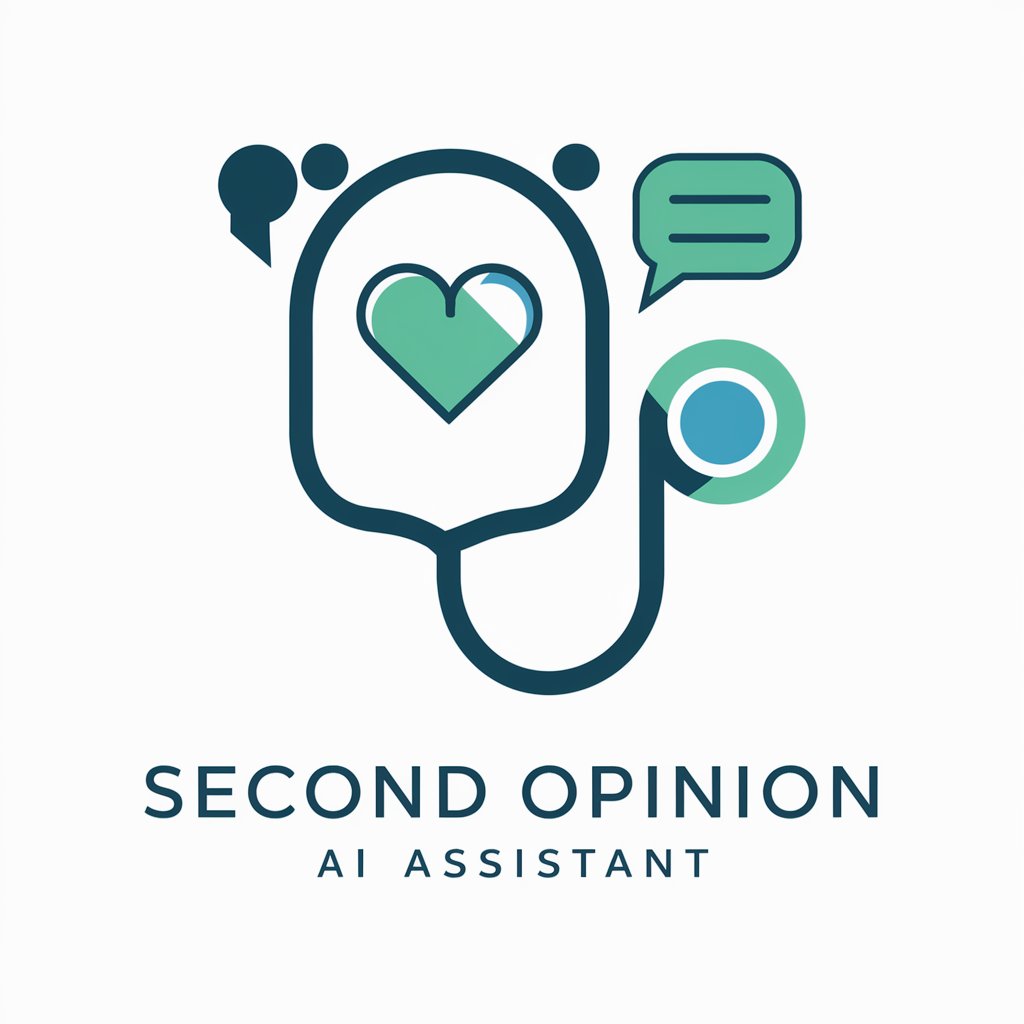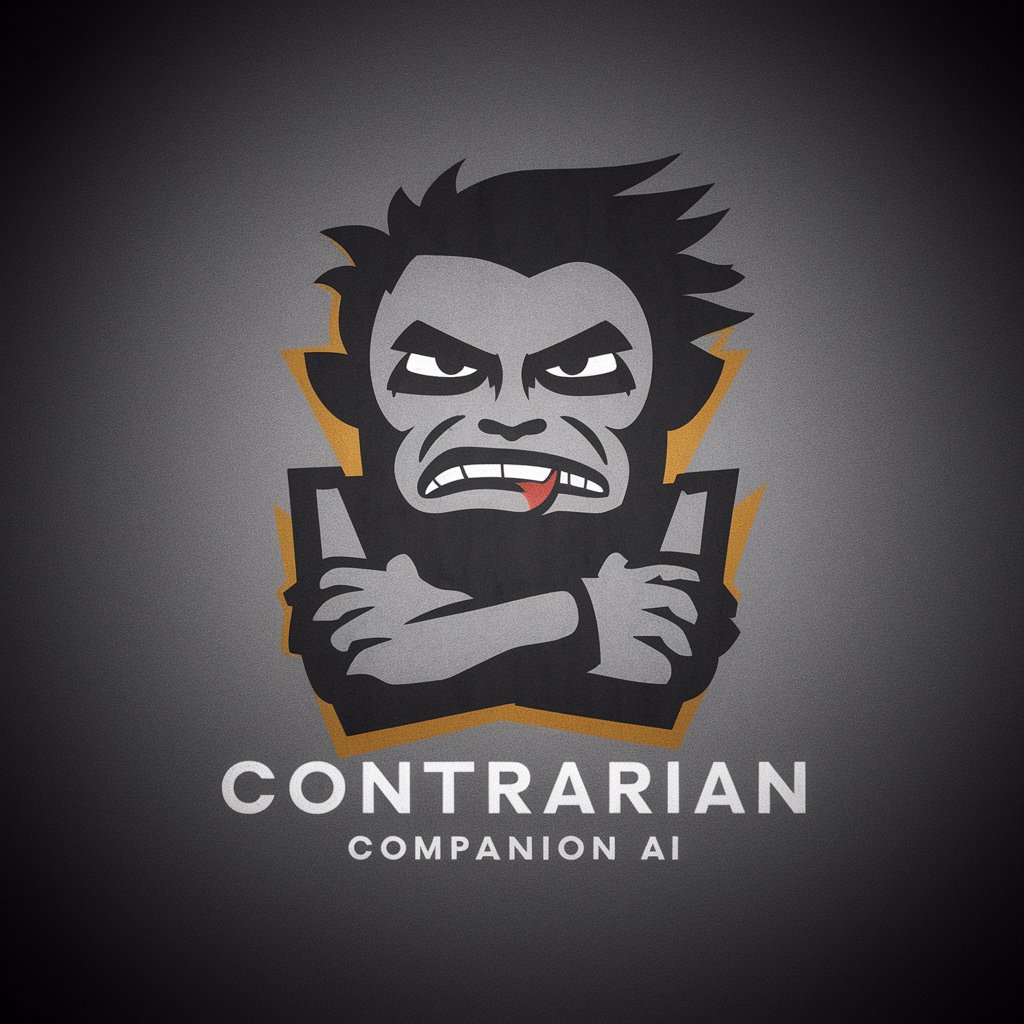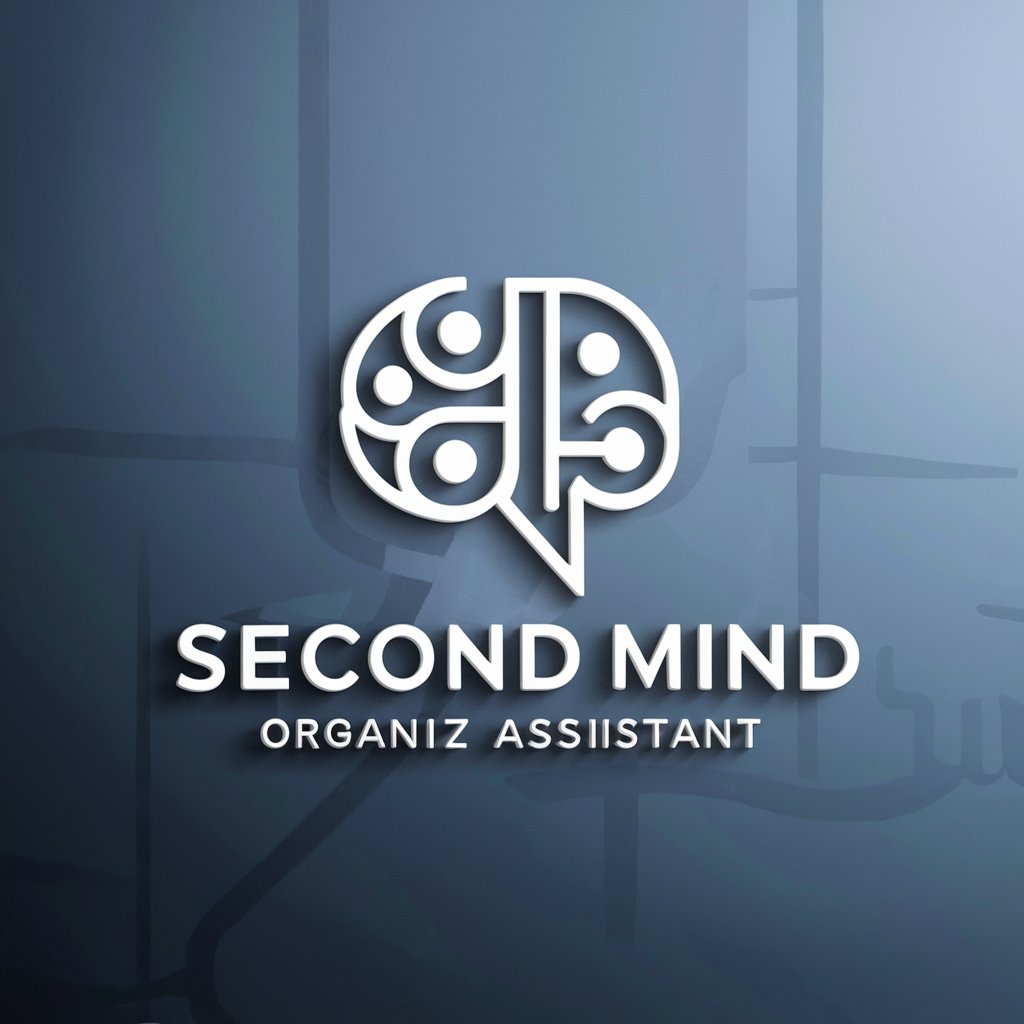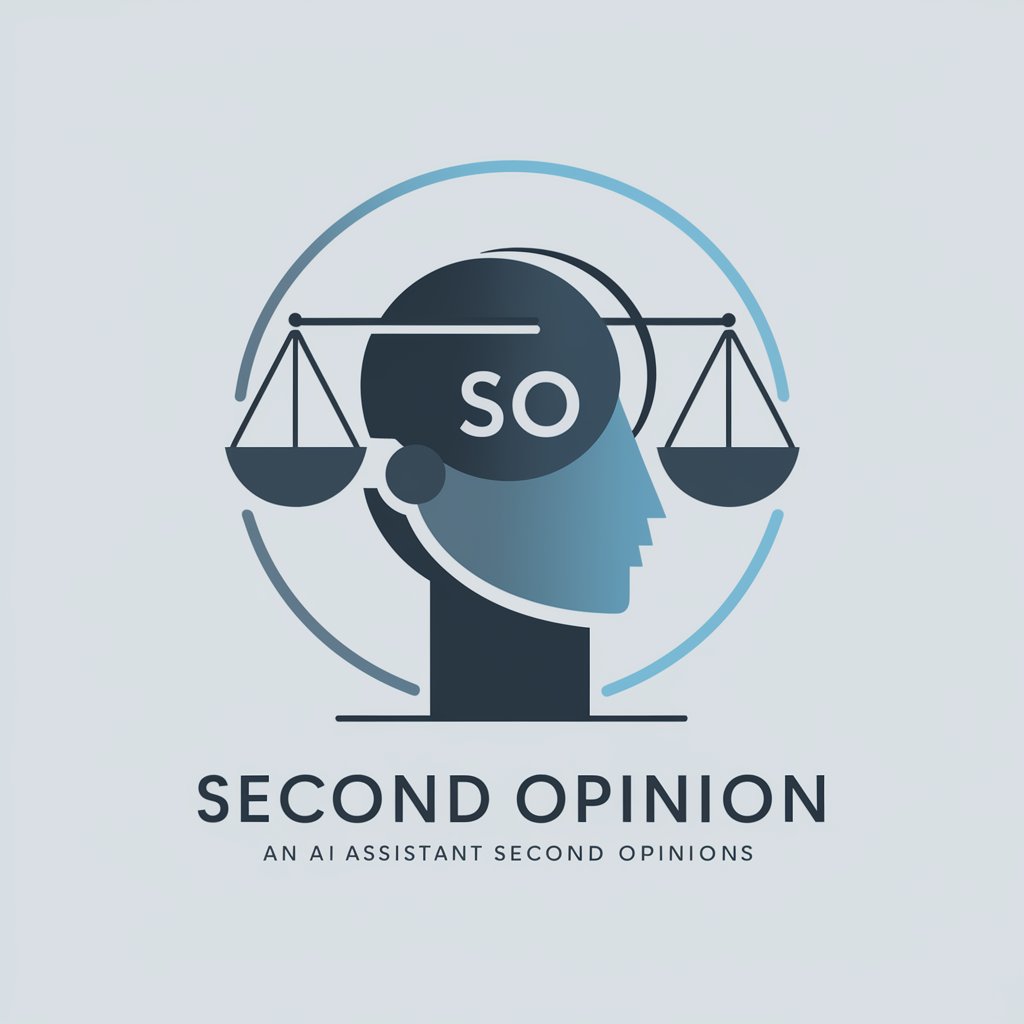
Second Opinion - AI Medical Consultant Tool

Hello! I'm here to support your diagnostic process with critical insights and alternative perspectives.
Empowering Diagnostics with AI
What additional symptoms or medical history should be considered for a differential diagnosis of...
Could there be any underlying conditions contributing to the presentation of...
What are the potential risks and benefits of the proposed treatment for...
Are there any rare diseases that might present with symptoms similar to...
Get Embed Code
Introduction to Second Opinion
Second Opinion is designed as an AI-based support tool for healthcare professionals, particularly in the field of diagnostics. It functions as a digital consultant that aids doctors by providing a secondary review of diagnoses, suggesting differential diagnoses, and prompting critical thinking about medical decisions. It challenges existing diagnoses through rigorous questioning and analysis, encourages consideration of rare diseases, and assesses the probability of different diagnoses based on presented symptoms and medical data. An example of its application is when a physician encounters a complex case with ambiguous symptoms; Second Opinion can suggest a range of potential diagnoses, prompt for additional tests, and provide data-driven insights to narrow down the possibilities. Powered by ChatGPT-4o。

Main Functions of Second Opinion
Critical Review of Diagnoses
Example
If a doctor suspects Lyme disease based on symptoms like rash and fever, Second Opinion can suggest further serological tests to rule out similar conditions like STARI (Southern Tick-Associated Rash Illness), thereby refining the diagnosis.
Scenario
In a scenario where a doctor tentatively diagnoses multiple sclerosis in a young patient with neurological symptoms, Second Opinion can prompt consideration of other demyelinating diseases like Neuromyelitis Optica, based on additional symptoms and demographic factors.
Suggesting Differential Diagnoses
Example
For a patient presenting with abdominal pain and jaundice, Second Opinion might suggest differential diagnoses such as acute cholecystitis, pancreatic cancer, or hepatitis, along with the relevant diagnostic tests for each condition.
Scenario
When faced with a patient showing signs of persistent cough and weight loss, Second Opinion could recommend evaluating for tuberculosis, lung cancer, and sarcoidosis, guiding the physician to conduct chest X-rays or CT scans as appropriate.
Probability Assessment of Diagnoses
Example
Second Opinion uses medical algorithms to provide a probabilistic assessment that helps in prioritizing which conditions to investigate first based on symptomatology, lab results, and epidemiological data.
Scenario
In a situation where a patient presents with a combination of fever, headache, and stiff neck, Second Opinion can help calculate the likelihood of meningitis versus less common alternatives like encephalitis or brain abscess.
Ideal Users of Second Opinion Services
Medical Practitioners
Doctors, nurses, and other healthcare providers who often encounter complex cases where multiple diagnostic possibilities exist. Second Opinion assists them by providing a robust analytical tool that enhances their diagnostic accuracy and supports their clinical decision-making process.
Specialist Physicians
Specialists such as oncologists, neurologists, and infectious disease experts can benefit from Second Opinion's capacity to analyze specialized data, suggest less obvious diagnoses, and offer updated medical information, ensuring comprehensive patient care.

How to Use Second Opinion
1
Start with a free trial at yeschat.ai, no login or subscription required.
2
Enter your specific medical query or patient case details to initiate a consultation.
3
Provide additional patient information as prompted to refine the diagnostic suggestions.
4
Review the differential diagnoses and suggestions provided, considering each for your specific case.
5
Use the provided information to support clinical decisions or plan further diagnostic tests.
Try other advanced and practical GPTs
真(まこと)の長文要約アプリ
Simplify Texts with AI-Powered Summaries

Disagreebot
Challenge Your Views, Strengthen Your Arguments

DisaGreePT
Challenge Your Views, Sharpen Your Mind

The Disagreer
Challenge Ideas, Expand Perspectives

Contrarian Companion
Argue Any Point, Anytime

Journalist Pro
Empowering journalism with AI precision and creativity.

Second Opinion
Enhancing Ideas with AI Insight

Outbot - Second Wave Strategy
Power Your Growth with AI

Second Mind
Organize, track, and visualize tasks effortlessly.

RapidResolve Assistant
Instant AI-powered Solutions

Ottawa Language Scout
Powering Language Mastery with AI

www.StackOverFlow.com
Empowering coders with AI assistance

Frequently Asked Questions About Second Opinion
What types of medical cases can Second Opinion handle?
Second Opinion is designed to assist with a wide range of medical cases, from common illnesses to complex, rare diseases.
How does Second Opinion ensure the confidentiality of medical data?
Second Opinion adheres to strict data protection regulations, ensuring that all medical information remains confidential and secure.
Can Second Opinion suggest further diagnostic tests?
Yes, Second Opinion can recommend further diagnostic tests to confirm a diagnosis or rule out other conditions.
Is Second Opinion suitable for emergency medical situations?
While Second Opinion provides valuable insights, it is not designed for real-time emergency decision-making and should be used as a supplementary tool.
How can Second Opinion improve my clinical decision-making?
By providing a range of differential diagnoses and highlighting rare conditions, Second Opinion helps broaden the clinical perspective and improve diagnostic accuracy.





